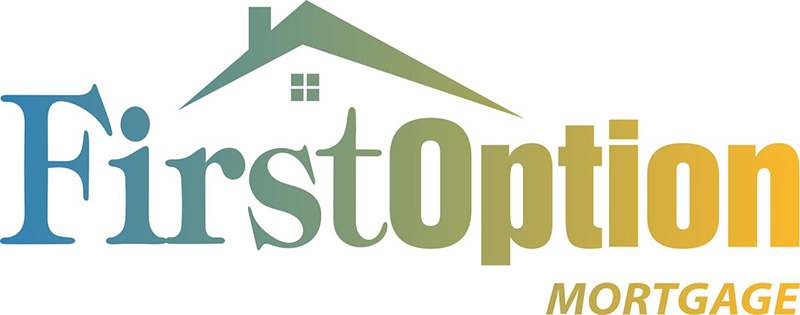Save, Save, Save
The first, and more crucial, step is to ensure your finances are in order. Making sure to have money set aside for a down payment and other expenses requires patience and discipline, but can set you up for success along the way. For example, you’ll need to be prepared to break out the checkbook to cover expenses for items such as inspections or closing costs, that live outside your down payment amount.
Most financial experts recommend saving for a 20% down payment of the purchase price of a home. However, according to a recent study by NAR the median down payment is 12%, and for first-time homebuyers the average is 6%. There are also many other options available that don’t require a full 20%. In fact, it’s possible to purchase a home with an even smaller down payment – as little as 3.5% down – with an FHA or conventional loan. But remember, the less you put down, the more you will pay in interest over the life of the mortgage. You may also subject yourself to personal mortgage insurance (PMI) requirements, which fall off over time.
Monitor Your Credit Score
The next step is ensuring you have a good (or good enough) credit score. A credit score is a summary of your credit report that gives lenders an indication of the likelihood of you paying back a loan. Your score is affected by how much debt you have, and how consistent you are with making on-time payments. Ultimately, your score helps lenders determine how much you can borrow, and at what interest rate. So, it will be worth your time now to focus on ways you can improve your credit score.
Find the Right Mortgage Lender
Often, the difference in a good or bad homebuying experience comes down to the lender – which is why it’s important to find someone you trust. The financing you choose for your home purchase will have a big impact on your budget for years to come.
At First Option Mortgage Indianapolis, mortgage loans are about much more than numbers and rates. They’re about people: families and veterans, newlyweds and retirees, looking for a better life.
Purchasing a home (especially your first home) is life-changing, which is why we’re committed to every call that inquires about rates and every person who walks through the doors of our local branch offices with a dream of home ownership.
Get Pre-Qualified for Your Mortgage
It’s a good idea to obtain a pre-qualification letter from your lender before you even start to look at homes. This letter will give a clearer picture of your financial standing – such as identifying your debt-to-income ratio, which will, in turn, determine a monthly payment you can afford. Pre-qualification is a simple process that gives a rough estimate of the amount you can borrow, with no guarantee of approval. You can start that process right here.
Partner with a Real Estate Agent
Once you’re pre-qualified, it’s time to partner with a real estate agent. As a first-time homebuyer, you’ll want a buyer’s agent, who will help you find the right houses and explain all of the nuances of home buying along the way. Something you can negotiate in your offer is the agent’s commission fee – it can be something the sellers will pay for you at closing.
Go Shopping
Be honest: You’ve already been to an open house or two on your own. And that’s okay! Shopping is the fun part, after all. Moving forward, your agent will line up showings for you within your budget and your search criteria. It’s important that you clearly communicate to your agent what you’re wanting in a home, so create your wish list of must-haves and nice-to-haves. This will help your agent to seek out properties for your consideration that best fit your wants and needs.
Make an Offer
You’ve found “the one!” Now, it’s time to make an offer. This is where you’re going to want to lean on your agent for this part of the process, because while your offer needs to fit your budget, it also needs to be competitive – and your agent will have the expertise to advise you on a reasonable and right amount. During the subsequent negotiation, you’ll need to be open to compromise as you work toward a final offer with your agent, especially in a more competitive market.
Get an Appraisal
Now that you’ve made your offer, it’s our turn to help make sure the value of your home meets that figure. First Option Mortgage will order an appraisal for you. The appraisal report is a standard document, valid for a set time period, that details the characteristics and estimated value of a property at that point in time. It describes the home’s condition, age, square footage, neighborhood, and sales prices of comparable nearby homes, among other things. So what does this mean for you? You either find out that your offer is within the appraised value and your loan moves forward, or you find out that your offer is over the appraised value, and that difference would come out of your savings (outside of the loan).
Hire a Home Inspector
Once you’re under contract, you’ll need a handy home inspector. Their role is to check the home’s structure, roof, HVAC, plumbing, and electrical systems among other things. Also, upon request, they can check for potentially hazardous and/or costly conditions such as lead paint or mold. Your agent will likely have a trusted inspector they’ve worked with in the past, but ultimately that decision is up to you. You and your agent should be present during the inspection so you can ask questions when necessary.
Finalize an Agreement
You’re almost there! Now at this point, it is common that an item or two have popped up in an appraisal or an inspection that needs repair or resolution prior to closing. This is when final negotiations typically take place; and, sometimes, if a mutual agreement cannot be made, you can retract your offer, if you wish. In the meantime, your loan will be verified against the final agreement, ensuring that the property is safe and sound for your family.
Complete the Closing
Closing day is a monumental day for first-time buyers – or any buyers, for that matter. It’s the day you officially get the keys to your new home, and the mortgage funding closes, paying all parties involved (this includes your down payment for your loan, closing costs, and any extra fees you pay to process your loan). In the 24 hours before closing, buyers typically do a final walk-through of the property, and make sure all repairs are made and that the home is cleared.
Move in to Your New Home!
And now the real fun begins … or maybe that’s only once you’ve unpacked and truly settled into your new home. Regardless, move-in day is when you’ve finally graduated from homebuyer to homeowner. Enjoy it, as it’s a truly special occasion!
Now that you’re aware of these major steps in the homebuying process, we hope it will make the experience less stressful. So, go forth and start your journey to homeownership with greater confidence, first-time homebuyer! And with First Option’s team of trusted partners by your side, you will have experts available to help answer any questions you might have along the way.








